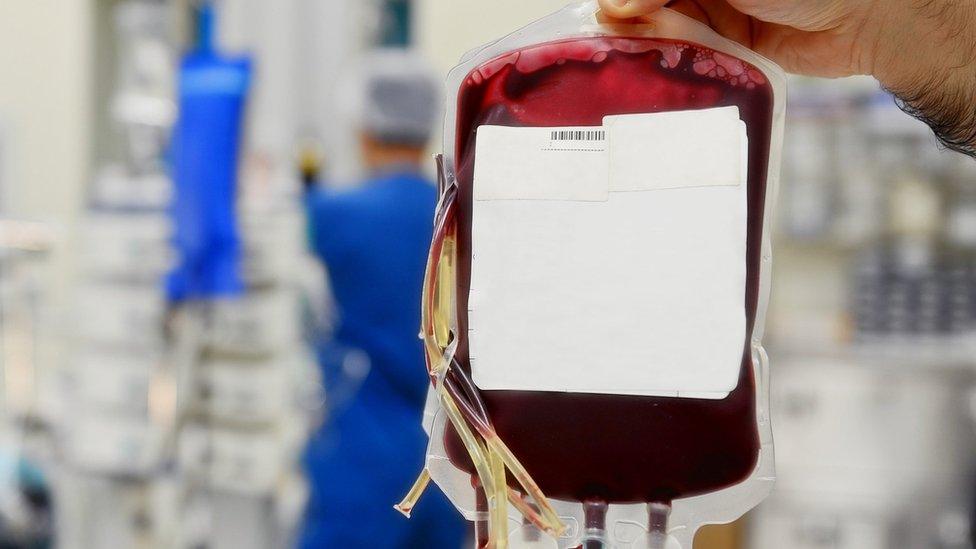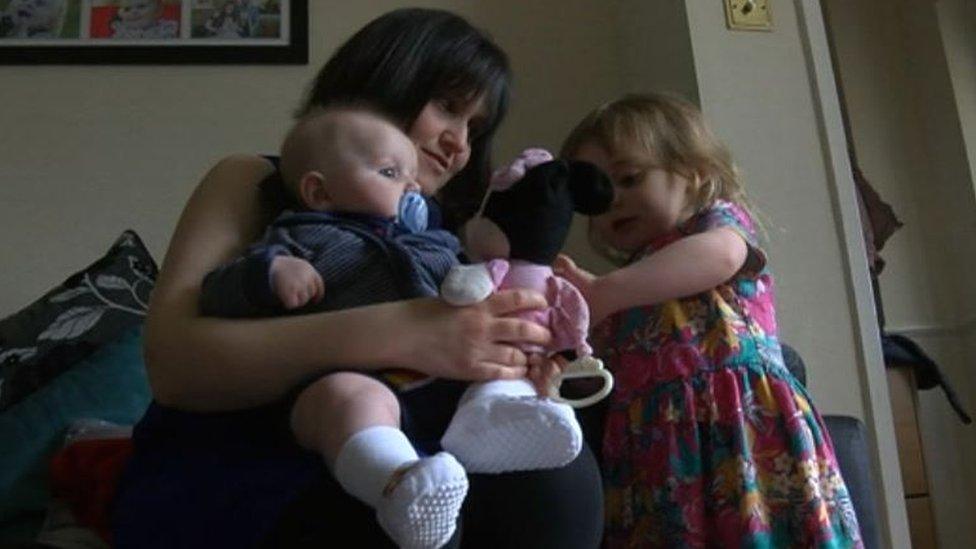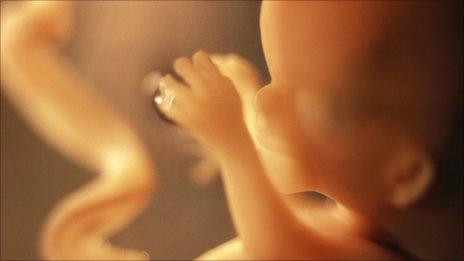Cells4Life admits cord blood stem cell promotion 'error'
- Published

Stem cell companies take blood from the placenta after a baby is born and bank it for the future
A company which harvests stem cells from placentas has admitted an "error" in one of its promotions.
Cells4Life in West Sussex charges to collect the cells which it claims can provide an insurance should the child develop a disease later in life.
Health watchdog NICE recommends not clamping the umbilical cord before a minute to let blood flow to the baby.
But Cells4Life's blog said immediate clamping was "under 60 seconds" and delayed clamping "more than 30".
Chief operating officer Claudia Rees admitted to BBC Inside Out this was "contradictory" and "an error".
She added: "I would say it is greater than a minute but we do not advise on what it is. It's just not something that we get involved in".
Since speaking to the BBC, the promotional blog has been amended.
There is evidence that babies benefit from deferred clamping, external as it increases the amount of iron transferred to the baby, which is essential for brain development.
It can also stabilise the infant's blood pressure after birth.

What are the guidelines?
NICE recommends not clamping the umbilical cord before one minute after birth unless there is concern about the integrity of the cord or the baby's heart rate.
It says the benefits of delayed cord clamping include higher haemoglobin concentrations, a decreased risk of iron deficiency and greater vascular stability in babies.
If they wish, women can ask healthcare professionals to wait longer to clamp the cord.

Cells4Life is one of a number of licensed firms offering parents the chance to freeze their baby's stem cells for future use. It charges between £1,495 and £2,090 for the service.
It also charges an annual storage fee.
In 2015, the Advertising Standards Authority (ASA) ruled that Cells4Life's claims around cord blood storage were misleading.
The same company is currently being investigated by the ASA again after complaints raised by competitors.
One mother, Lauren Truelove, who banked her baby's cord blood, told the programme: "In my mind, I can't see a reason why you wouldn't do [stem cell storage]. It's just future-proofing."
However, some doctors say the way in which the blood is collected by the stem cell banking firms could be bad for the baby's health.
Prof Andrew Weeks from the University of Liverpool said: "If you cut the cord immediately, you leave a quarter of the blood in the placenta and the other three quarters is left on the baby's side.
"Stem cell research is hugely exciting but I don't think it's appropriate to harm a baby in order to take its stem cells.
"Let the baby use whatever blood it wants and use whatever's left after maybe five minutes."
Inside Out South East is now available on the iPlayer.

Follow BBC South East on Facebook, external, on Twitter, external, and on Instagram, external. Send your story ideas to southeasttoday@bbc.co.uk.
- Published16 May 2019

- Published9 October 2011
